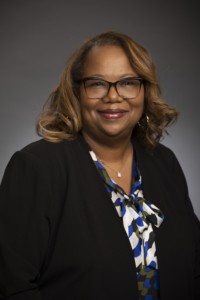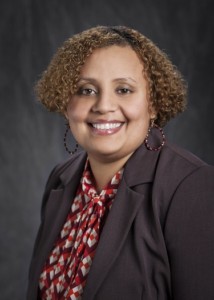HOUSTON (February 23, 2022) – For Kamala V. Williams, Ph.D., the path to improved literacies begins with a global perspective.
Williams, the manager of Prairie View A&M University’s Northwest Houston Center, has collaborated with Petra A. Robinson, Ph.D., and Maja Stojanović (an associate professor and doctoral student at Louisiana State University) to edit and release Global Citizenship for Adult Education: Advancing Critical Literacies for Equity and Social Justice. The landmark book, which focuses on how to promote equity and social justice through global citizenship and lifelong learning while integrating the development of critical literacies, includes contributions from more than 40 writers from Africa, Asia, Europe, Latin America, and North America.
But how can enhanced literacies really improve social justice and equity on a global scale? Williams explains that it all begins with recognizing how the concept of literacy has changed and continues to evolve in a global, technology-connected village.
“While global literacy is essential to critically examine world issues, it is paramount to move beyond mere discussion of its importance to using it for the advancement of equity and social justice,” she writes. Williams adds that the book is framed by co-editor Robinson’s already-published literacy model known as the Critical Literacies Advancement Model (CLAM).
What is the CLAM?
Although many people may think of literacy, at its most basic level, as the ability to read and write, CLAM provides a framework to organize nontraditional literacies: scientific literacy, technological literacy, multilingual literacy, news literacy, data literacy, emotional literacy and financial literacy, to name a few, which are essential for promoting equity and social justice.
“The intersections of global, cultural, and civic literacies are also presented [in the book], in addition to barriers to achieving global literacy, and an institutional leader’s effort as a model for awakening a university community,” Williams said, adding that she hopes CLAM can be used for developing critical literacy skills referenced in universities’ strategic plans and mission statements.
Williams expects readers to use the book to question current policies related to global literacy with the specific intention to equip people for activism and promoting social justice.
“[It] promotes the development of nontraditional literacies in adult education, especially as these critical literacies relate to global citizenship, equity, and social justice.”
Providing practical tips
In addition to presenting a new way to approach critical literacies on a global scale, the book also includes practical resources at the end of each section to help develop specific literacies in adult education settings. As one reviewer noted: “Academics from multiple disciplines, organizations interested in developing any of the literacies, as well as global citizens concerned with critical thinking and promoting equity and social justice will all find this book useful.”
“It’s imperative for adult educators and learners to understand systems, organizations and relationships that influence our lives as citizens of the world.”
Williams adds that the book’s focus is not only within the arena of adult learning. “If you have a company and are interested in improving literacies, as well as equity, we want you to read the book,” Williams said.
Providing a solid framework
Williams’ colleagues worldwide are hailing the book as a new milestone in literacy studies.
“To be an active citizen, one needs to be aware that literacy is more than reading, writing, and math,” said Michelle Glowacki-Dudka, an education professor at Ball State University.
She continued, “the way that technologies have infiltrated all aspects of our lives means that we need more knowledge about how to receive, interpret, filter, and understand the impact and content. This book provides a framework for understanding these many different literacies.”
Joellen E. Coryell, assistant dean and education professor at Texas State University, praises the book’s depth and collective wisdom: “The book is a significant and desperately needed critical work in the fields of adult, professional, community, human resource development and higher education. Robinson, Williams, and Stojanović have collected insights from around the world to expand and explain in-depth the literacies necessary for today’s realities of diversity, identity, global citizenship, and social justice. They also provide concrete resources for relating theory to practice in youth and adult literacy education. I find it to be a ‘must-read’ for graduate adult education programs and for all of us who seek to identify and enact critical cosmopolitan values, learning, and .”
Click here to purchase Global Citizenship for Adult Education: Advancing Critical Literacies for Equity and Social Justice on Amazon.
By Jason Reagan
-PVAMU-



